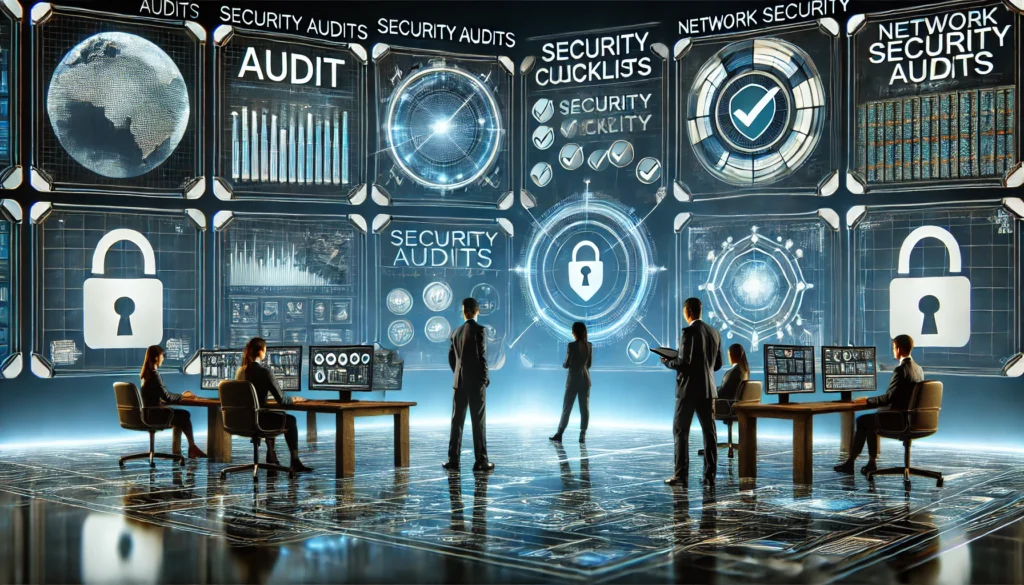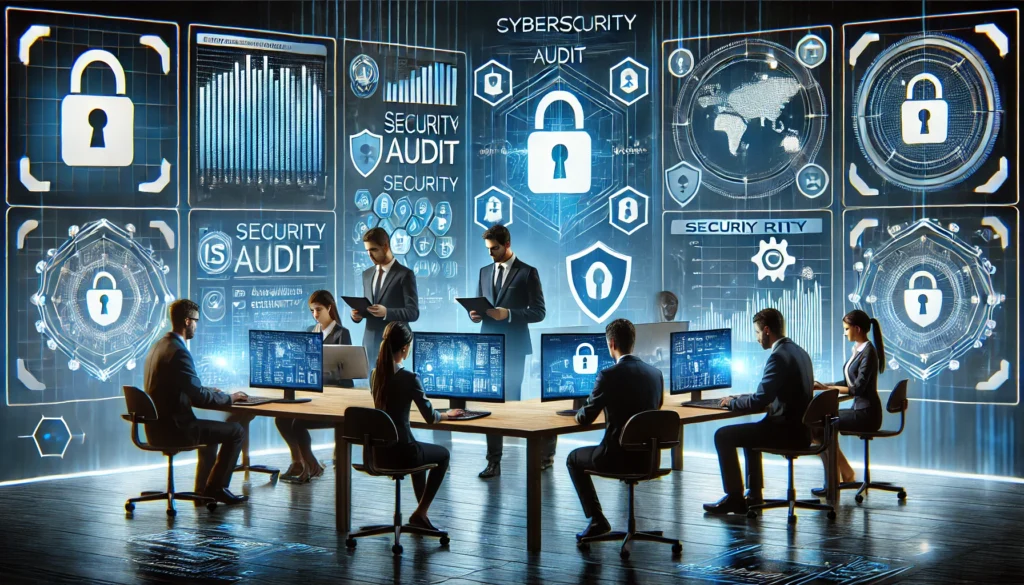In today’s progressively advanced world, cybersecurity has gotten to be one of the most basic angles of securing data, frameworks, and systems. From businesses to people, everybody is at chance of cyber threats—ranging from information breaches to advanced hacking endeavors. As a result, companies and organizations have to execute rigid measures to protect delicate information. One of the most compelling methodologies to ensure solid cybersecurity is through security audits.
In this article, we will examine the part of security reviews in cybersecurity, why they are basic, how they work, and their portion in keeping up the security of computerized systems and data.
What is a Security Audit?
A security survey is a thorough examination and appraisal of an organization’s information systems, frameworks, and shapes to assess their maleness in guaranteeing against cyber threats. The reason of a security audit is to recognize vulnerabilities, assess perils, and ensure that the suitable security measures are in put to guarantee data and systems from unauthorized get to, burglary, or harm.
In straightforward terms, think of a security review as a comprehensive “wellbeing check” for a company’s cybersecurity system. It audits both the specialized and regulatory perspectives of security to guarantee that nothing is overlooked.
Why are Security Reviews Important?
The significance of security reviews cannot be exaggerated. They play a significant part in:

1. Recognizing Vulnerabilities
One of the essential reasons for conducting security overviews is to recognize lacks in an organization’s cybersecurity confirmations. These vulnerabilities can come in distinctive shapes, such as out of date computer program, misconfigured firewalls, or slight watchword courses of action. A security review makes a difference pinpoint these vulnerabilities, permitting organizations to settle them some time recently they are misused by hackers.
2. Hazard Appraisal and Management
Security reviews offer assistance organizations evaluate the dangers related with their data frameworks. By analyzing potential dangers and the probability of an assault, businesses can prioritize the dangers they require to address quickly. Without a comprehensive review, companies may ignore potential dangers that seem to have destroying consequences.
3. Guaranteeing Compliance
Many businesses, such as healthcare, fund, and retail, are subject to strict directions and benchmarks with respect to information security. These measures guarantee that organizations take after best hones to ensure touchy client and trade data. Security reviews offer assistance organizations keep up compliance with these controls, maintaining a strategic distance from strong fines and legitimate repercussions.
4. Building Believe with Stakeholders
Security breaches can truly harm a company’s notoriety. A fruitful security review, on the other hand, illustrates that an organization is genuine around securing information and guaranteeing its cybersecurity. This can construct believe with clients, clients, accomplices, and other partners, which is crucial for keeping up trade relationships.
5. Nonstop Improvement
Cyber dangers are continually advancing, and what may be secure nowadays may be helpless tomorrow. Standard security reviews permit organizations to remain on best of developing dangers and ceaselessly move forward their security pose. A one-time review is not sufficient, and conducting reviews frequently guarantees that guards stay strong.
Types of Security Audits
Security reviews can be performed in different ways depending on the particular needs and destinations of the organization. A few of the common sorts of security reviews include:

1. Inner Security Audits
An inner security review is conducted by an organization’s possess security group or IT division. These reviews survey the inside forms, approaches, and frameworks for vulnerabilities. Inside reviews are regularly less formal than outside reviews, but they still play a critical part in guaranteeing that the organization’s cybersecurity measures are effective.
2. Outside Security Audits
External security reviews are performed by third-party inspectors who are autonomous of the organization. These inspectors give a fair assessment of the company’s security pose. Outside reviews are frequently more comprehensive and can give a new point of view on potential dangers that may have been ignored by inner teams.
3. Arrange Security Audits
Network security reviews center particularly on the security of an organization’s organize framework. This incorporates assessing firewalls, switches, and other arrange gadgets for vulnerabilities, as well as checking for unauthorized get to focuses and potential breaches.
4. Application Security Audits
Application security reviews are centered on recognizing security imperfections inside an organization’s program applications. These reviews survey how secure the code is, whether the application has any potential section focuses for programmers, and how well it ensures touchy client data.
5. Compliance Audits
Compliance reviews guarantee that an organization is following to particular industry benchmarks, directions, and legitimate prerequisites. These reviews confirm that the organization is taking after best hones for securing information and assembly all compliance commitments, such as the Common Information Assurance Control (GDPR) or the Payment Card Industry Data Security Standard (PCI DSS).
6. Social Building Audits
Social designing reviews test an organization’s protections against control and double-dealing strategies utilized by cybercriminals. These reviews may incorporate endeavors to control workers into giving up delicate data, such as login qualifications, or conducting phishing campaigns to see how well workers react to such threats.
How Does a Security Review Work?
A security review ordinarily includes a few stages to guarantee that all angles of an organization’s cybersecurity are looked into and evaluated. The fundamental steps in a security review are:

1. Arranging and Preparation
Before beginning the review, the security group or evaluators will characterize the scope of the review and recognize the particular regions to be evaluated. This may incorporate arrange security, program vulnerabilities, client get to controls, and more. The inspectors will too accumulate significant documentation and framework arrangements to get it the organization’s security environment.
2. Hazard Assessment
Once the scope is characterized, evaluators will conduct a hazard appraisal to decide potential vulnerabilities and dangers. This prepare includes distinguishing zones where the organization’s frameworks and information may be at chance, counting frail passwords, obsolete computer program, or incapable security policies.
3. Testing and Evaluation
During this stage, evaluators will perform different tests to assess the adequacy of security measures. This may incorporate infiltration testing, defenselessness checking, and checking for compliance with industry measures. The objective is to distinguish shortcomings that may be abused by cybercriminals.
4. Reporting
After testing and assessment, evaluators compile their discoveries into a nitty-gritty report. The report will diagram distinguished vulnerabilities, potential dangers, and proposals for making strides security. This is the basic step where the organization picks up understanding into its cybersecurity qualities and weaknesses.
5. Remediation
Following the review, the organization must take activity to address the recognized vulnerabilities and actualize suggested changes. This may include upgrading program, moving forward get to controls, or actualizing more grounded encryption conventions. Remediation guarantees that the organization’s cybersecurity protections are fortified and up to date.
6. Follow-up Audits
Cybersecurity is a progressing prepare, and standard follow-up reviews are basic to guarantee that security measures proceed to advance with rising dangers. These reviews offer assistance affirm that the fixes and changes actualized after the beginning review have been viable and that unused dangers haven’t arisen.
Benefits of Security Audits
Security reviews offer a few preferences to organizations, including:

- Proactive Chance Administration: By recognizing vulnerabilities some time recently they are misused, security reviews offer assistance decrease the probability of an information breach or cyberattack.
- Improved Security Pose: Customary reviews guarantee that cybersecurity measures stay up-to-date and compelling against rising threats.
- Cost Investment funds: Avoiding cyberattacks through reviews can spare an organization noteworthy sums of cash that would something else be going through on recuperating from a breach.
- Compliance Affirmation: Security reviews offer assistance organizations meet administrative prerequisites and dodge fines related with non-compliance.
- Enhanced Notoriety: A company that experiences normal security reviews and actualizes changes is seen as dependable and solid by clients and trade partners.
Conclusion:
In a world where cyber dangers are getting to be more progressed and visit, security reviews play a basic part in guaranteeing the security and astuteness of data frameworks. By recognizing vulnerabilities, surveying dangers, and guaranteeing compliance with security measures, security reviews offer assistance organizations fortify their protections against cyberattacks. Customary reviews contribute to continuous enhancement, guaranteeing that cybersecurity measures remain compelling in an ever-changing computerized scene. For businesses and organizations of all sizes, contributing in security reviews is basic to defending touchy information and building believe with partners.
Read more posts:

